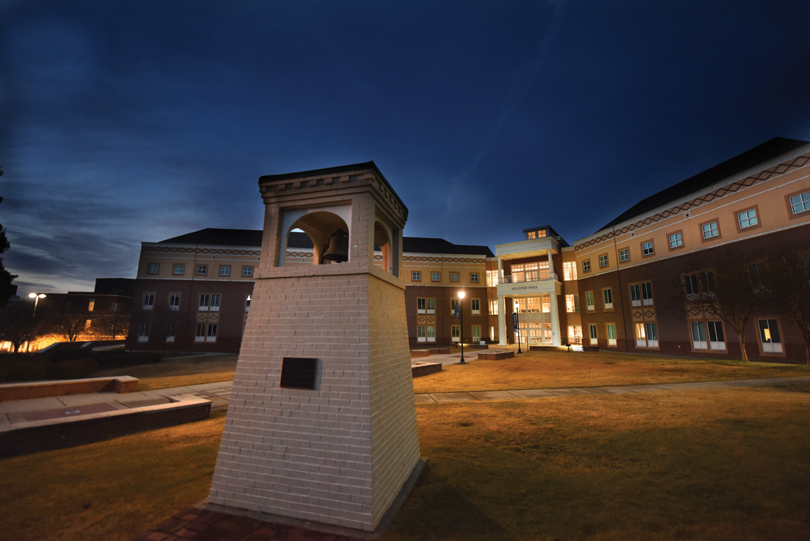Dean Richard Franza’s column appeared in the Sunday, January 17 edition of the Augusta Chronicle. The post can be viewed here.
As an undergraduate applied mathematics major, I was introduced to many mathematical modeling methods. One such method I learned is called “game theory.” Game theory uses mathematical models to analyze interactions between “rational decision-makers.”
When one is introduced to game theory, it is typically through an example called the Prisoner’s Dilemma. The Prisoner’s Dilemma shows why two people (or organizations) might not cooperate, even if it appears that it would be in their best interests to do so. The Prisoner’s Dilemma was presented as follows by Canadian mathematician Albert W. Tucker:
Two criminals are arrested and jailed. Each is placed in solitary confinement with no means of communicating with each other. Prosecutors lack sufficient evidence to convict the pair on the principal charge, but they have enough to convict both on lesser charges. Simultaneously, the prosecutors offer each prisoner a deal. Each prisoner is given the opportunity either to betray the other by testifying that the other committed the crime, or to cooperate with the other by remaining silent.
The possible outcomes are as follows:
- If both prisoners each betray the other, each of them serves two years in prison.
- If either of the prisoners betrays the other while the other stays silent, the betraying prisoner will be set free while the silent prisoner serves three years in prison.
- If both prisoners remain silent, both of them will serve only one year in prison.
The paradox of the prisoner’s dilemma is that both criminals can minimize their combined jail time only if they cooperate and remain silent (two years total). However, the incentives that each face separately (set free) will motivate them to betray their partners, typically resulting in the maximum total jail time (four years total) between the two of them.
As our two political parties in Washington become more polarized, the Prisoner’s Dilemma has become more applicable to how they deal with one another.
This has been highlighted during the recent attempts at COVID relief, but has been present in a number of areas that affect the economy of the country, including issues such as taxes and health care. While each political party is actually acting rationally (in its own best interest), such action is resulting in inaction – the worst possible result – not only for the parties, but, more importantly, for the country. Allow me to elaborate on the problem and how a mindset change in Washington might lead to solutions.
Clearly, the two political parties think very differently on numerous issues, and as time has gone on, the parties have shifted further and further from one another. Each party is incentivized to dig in its heels and not negotiate with the other side because if they do, they are afraid of losing their fundraising capability and losing voters. They believe that adhering tightly to their ideologies will lead to more money and more votes.
As both sides become entrenched, everyone loses, because neither side gets what it wants. Most of all, the people of the country lose, as we saw in the most recent COVID relief negotiations. While a bill was eventually negotiated, neither side would move much until the end, as economic crisis faced many individuals. Therefore, such a bill took way longer to pass than it should have. This lack of cooperation has hurt not only the country as a whole, but also both parties.
While each party believes it is right and will win the “war of ideas,” that was proven wrong in the most recent election. For the Democratic Party expecting a “blue wave” in November, it never materialized. The Republicans actually gained seats in the House and the Democrats hold a slim majority – hardly a mandate. On the other hand, the Republicans lost both the White House and its majority in the Senate. So, clearly, there were no real winners. Both parties are strategizing over what went wrong, and the biggest losers have been the American people.
The solution to our problems in Washington can be found in the Prisoner’s Dilemma. In the Prisoner’s Dilemma, when the two parties cooperate, the best global solution prevails. I think it is time that our politicians prioritize mutually beneficial collaboration over their need for fundraising and perception of ideological adherence. We have a number of economic issues on our doorstep that need to be addressed, and collaboration among our political parties is the surest way to move from inaction to solution.
Our politicians need to work together to find common ground on a number of issues. Further inaction in these areas will lead to further debilitation of our economy. Such issues include:
- Economic recovery from the COVID pandemic
- Job growth
- The rising cost of health care
- Infrastructure investment
- Trade
As the new year begins, I am hopeful that we will recover from the pandemic and things will get better. However, I am less hopeful that our political parties will find common ground. Maybe some enlightened politicians will study the Prisoner’s Dilemma and realize that cooperation among our parties will lead to mutually beneficial success.






